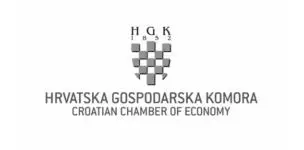Radin believes that mandatory membership in the HGK negatively affects competitiveness by increasing the regulatory burden on businesses, possible corruption and greater conflict of interest in the chamber’s work and that it reveals an inability to amend the legislative framework and lack of a long-term vision. Also, mandatory membership increases administrative terms of doing business, including operating costs.
Radin believes the first argument in favour of abolishing mandatory membership in the HGK refers to the mandatory membership fee since Croatia is one of only three EU member states where the membership of the chamber of commerce is mandatory (the other two are Austria and Germany) while all other post-Communist countries have switched to voluntary membership.
The second argument concerns the HGK’s efficiency.
“Since one of the HGK’s main goals is promotion of domestic exports, its work can be measured by success in increasing exports. However, when analysed in the context of other post-Communist countries, Croatia not only has a relatively low value of exports but their growth is much smaller than in those countries,” she says.
She adds that the third argument has to do with the HGK’s legitimacy in representing businesses’ interests and the way it was established.
The 1991 HGK Act declared the HGK as a body with public authority and the law guaranteed its sustainable financing through the collection of a mandatory membership fee. Since the HGK was established by a legal decision, its further operation and existence (as well as financing) can also be changed or it can be abolished, the author concludes, noting that the HGK would have to undergo a radical reform.










